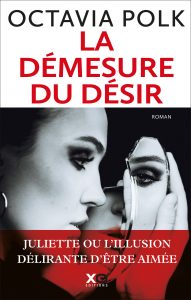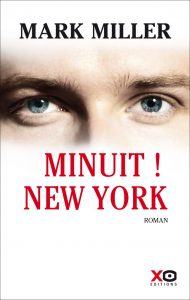Author's interview
In Someone To Talk To, you tell us the story of Samuel, a likeable thirty-something who is a little lost in his life. What is the incredible thing that will change his life?
On the evening of his thirty-fifth birthday, Samuel is left alone, without anyone to talk to. His only two guests have run into a hold-up and his Smartphone is out of order. He is left with his land line phone but, like everyone, he doesn’t know any number by heart ; any number except his childhood number, that old number with eight digits that has stopped working in the 90s when France changed for ten digits phone numbers… Out of curiosity, he dials it. Not only does someone answer, but that someone turns out to be himself, the little boy he was when he was ten.
This time again, the idea behind your novel is quite surprising. How did it come to you?
The idea came on its own, during a family dinner. Someone at the table was explaining to my nephews that, during the days of the land line phones, we knew phone numbers by heart, contrary to nowadays. And everyone around the table recited their first number, the phone number of their childhood… It was surprising to see that nobody had forgotten it. Mine was 68-50-41-35, the one that I used in the book. Instinctively, I dialled it on my Smartphone, and I called ; my niece then told me : “Imagine, if someone answers !”. So that’s what I did…
Samuel is a very touching character, with his strengths and weaknesses. Can you tell us more about him
Samuel is alone. This solitude comes with time, without us really noticing it. His parents are gone, his college friends have left… He isn’t really unhappy, but he is prey to the routine of work/home that has made him forget all his dreams. But Samuel is lucky: he is kind, in a noble way. He chooses to see the good in people and, with his humour and kindness, he is quite naturally liked by others; he simply doesn’t see it. Samuel is like a spectator of his life, like the rest of us… But little Samuel is going to change all that, even beyond what he could have imagined!
We also follow the evolution (not quite easy) of his love story with a young Chinese woman: Li-Na. How is little Samuel, the child he was, going to help him face his doubts?
Little Samuel is going to make the adult one hear that childhood dreams are dreams before anything else, and that there is no reason to forget them with time. Li-Na is the woman of Samuel’s dreams, but the obstacles are numerous and, like any adult, Samuel thinks in a “reasonable” way, a “realistic” way… and it is the way of resignation. Little Samuel is going to remind him that when he was only eight year old, he did everything in his power to find his little lover, sneaking out of the house and riding his bicycle in the night to take the train to Bretagne… This part is actually autobiographical! If you can do that when you are eight year old, you should be able to go to the other side of the planet for love when you are adult, and that’s what Samuel will understand thanks to the child he was.
Family ties and the links to one’s own childhood are themes you hold dear. Where do the tenderness and humour, with which you tackle theses subjects, and which give that particular tone to your books, come from? And what do your books say about your own life, your own story?
Like for God is a Buddy of Mine and A Hundred Blank Pages, my main character was right in front of me: it’s me. I usually say that these books are not autobiographical, but auto-characterised. I imagine what would my reactions be if these extraordinary things happened in my life: I entertain myself surprising me, when I’m writing, to monitor my reactions and to give them to my character. This writing dynamic is quite schizophrenic, but very pleasant! Writing then becomes a real pleasure, and I’m both actor and spectator.
Since your first novel, God is a Buddy of Mine, you are quite popular. Your books are translated in 18 languages. What do you think touches your readers?
Simplicity and emotion. I like to write novels that give readers the feeling of fluidity, a simple reading… in other to better trap them in a moment of emotion when they expect it the less. I do my best and I hope to succeed, because writing “simple” is not easy. On top of that, I write about universal subjects: our link to our childhood, family, what shapes us, what we can do to live beyond trauma… My here is James Bond’s opposite: what he lives, what he thinks, what he wants, anybody could share. And I think these feelings have no language nor borders.
Reading this novel, we think about God is a Buddy of Mine. Did you want to reconnect with the tone that has made you known and liked by your readers?
Yes, very clearly! I wanted to bring this character back, my character of a lost and nice thirty-something with his humour and weaknesses. I also found the same writing joy and freshness… So I leave you to imagine how impatient I am to meet my readers again…
lire toute l’interview




















